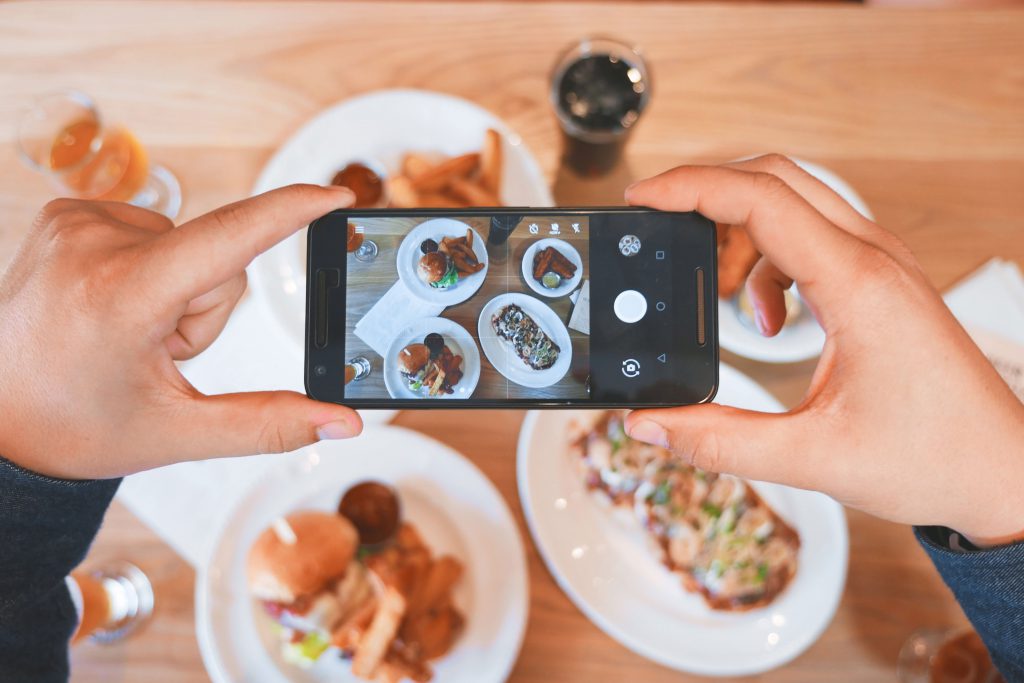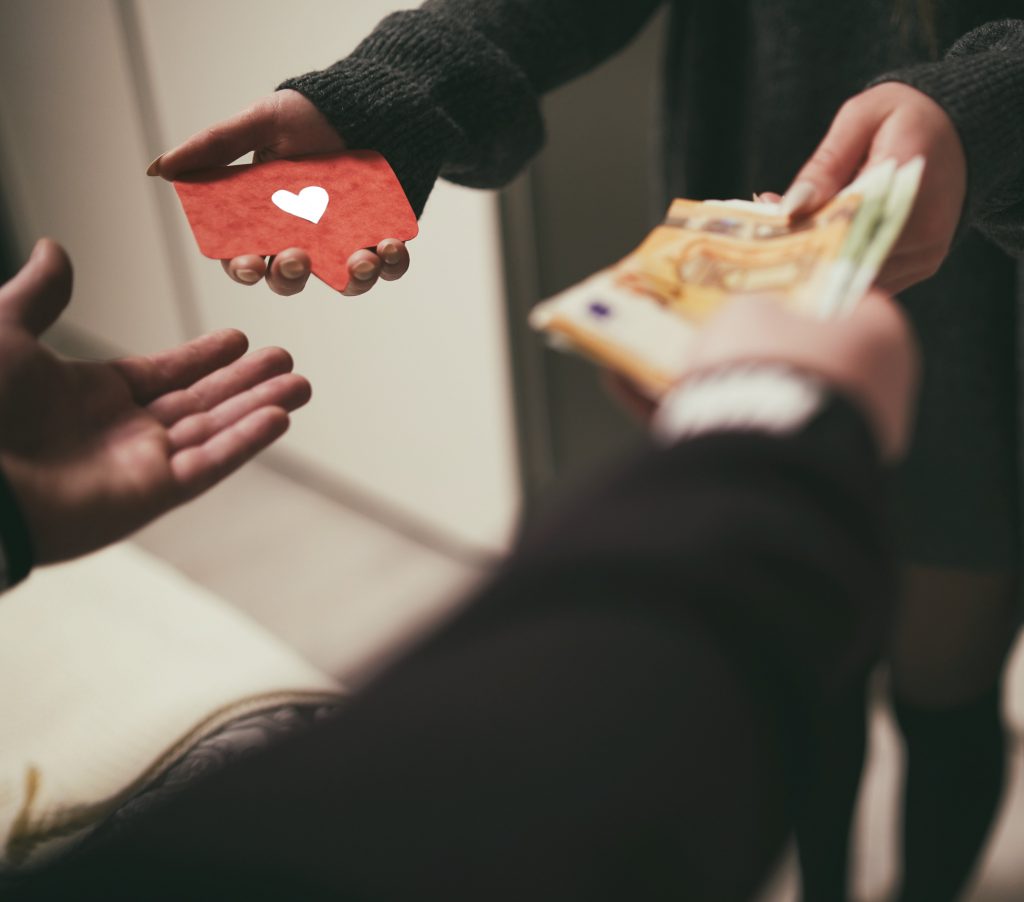Does social media affect eating disorders?
Social media is a powerful and ever-growing presence in our society. It provides us with the ability to share, connect and engage with people all over the world and interact with our friends and family at the touch of a fingertip. However, it’s becoming evident that social media is not all it seems. With the help of dietitian Ms Claire Fudge and psychologist Dr Sukbinder Bilkhu, we investigate how does social media influence eating disorders

The dangers
Rarely do we see totally unedited photographs and posts of ourselves and others on social media. For the most part, we share filtered versions of ourselves at our happiest. Although social media can be used to inspire the adoption of a healthy fitness regime or diet for example, it can lean towards an eagerness for perfection creating extreme behaviours to try and reach the unreachable perfection.
We’re always trying to achieve that ‘perfect’ even though we realise that doesn’t necessarily exist, we’re striving to get there. We may feel if we can’t achieve that then we’re failing in some sort of way”
Medstars’ dietitian, Ms Claire Fudge
Approval
The vast sharing capabilities of social media expose us to a variety of photos, many of which are edited. The number of likes we receive becomes our measure of approval; they act as a currency to determine our worth. It is not uncommon to hear of someone invariably checking their most recently uploaded photo for likes. If they’re not getting as many as they hoped, they may remove it and question why it didn’t receive the approval they expected.
Comparison
The anxiety that stems from the craving to achieve a certain number of likes, is often exacerbated by the number of likes achieved by others. You might ask yourself why this person is getting more social media ‘approval’ than yourself and how you can change to become more like that person. This forced pressure on one’s self can be dangerous and may affect the way we feel about our natural selves. It is particularly toxic for those already suffering from eating disorders, as the person may determine the reason for fewer likes is due to their physical appearance.
Body dysmorphia
A person’s desire to emulate the appearance of celebrities may lead to other mental health disorders like body dysmorphia, which could, in turn, result in an eating disorder. This isn’t to say that the celebrities themselves don’t experience body dysmorphia. Kim Kardashian suffered a breakdown after what she deemed unflattering photos of herself were spread across the internet. She was quoted as saying “It’s like literally giving me body dysmorphia.”
Social media websites like Instagram and Snapchat contain a ‘stories’ section in which people can share photos of their daily activities for 24 hours. This plays a large part in intensifying celebrity exposure and creates an unrealistic sense of what is considered a ‘normal’ physical appearance. Snapchat also offers a filter feature in which people can take photos of themselves with an automated edit to their facial features, creating sharper cheekbones and a slighter nose, for example.
Triggers
Different images, diet claims, celebrities on new slimming diets with dramatic changes in body weight, hype of new products with health claims to dramatic weight loss or linking weight, shape and dieting related to self-worth or self esteem” could all pose as triggers for a person in recovery.
Medstars’ dietitian, Ms Claire Fudge and psychologist, Dr Sukbinder Bilkhu
Celebrity promotion of products such as diet teas have previously resulted in relapse of eating disorder sufferers. Diet teas containing laxatives are regularly advertised by celebrities such as Cardi B, Iggy Azalea and Amber Rose on Instagram. India Benjamin had suffered with eating disorders in the past and became addicted to diet teas for six months after they began appearing on her Instagram feed. She told BBC Newsbeat: “Everyone I seemed to be following – the skinny bronzed girls – were all just flogging it at the time.”

Curate your own safe space
That said, your social media channels can be moulded into a place of encouragement, learning and support. Be careful about the accounts you follow. While many motivational exercise or dieting social media accounts may be helpful for your general wellbeing, make sure you’re focusing on the right ones and be aware of social media accounts that make you feel inadequate.
If you find yourself too immersed in living up to the expectations of a fitness and health account, don’t be afraid to unfollow!
Following body positive Instagram accounts can provide additional support and counterbalance the potentially harmful, unrealistic body ideals set by celebrities. Here are a few amazing people to follow:
- Ashley Graham – @ashleygraham
- Iskra Lawrence – @iskra
- Tess Holiday – @tessholiday
- Megan Jayne Crabbe – @bodyposipanda
- Morgan Mikenas – @i_am_morgie
You can read a real story about Instagram’s role in the recovery of an eating disorder sufferer by clicking here, demonstrating the potentially positive effects of social media on eating disorders.

Spotting the signs
If you’re concerned that an eating disorder may be affecting someone you know, Ms Claire Fudge and Dr Sukbinder Bilkhu advise you to consider these three steps:
- Have a think about what you want to say and choose a good time to talk to them, in a safe and calm space. Make sure that this isn’t around the table or when they are eating.
- People with eating disorders can find it difficult to acknowledge that they have a problem and need help. If they do; encourage them to seek help as soon as possible. Make a start with directing them to find information like the BEAT website and contacting their GP. You could even offer to go with them if they felt more supported.
- If they cannot acknowledge it right now. Show and recognise your concern. Do try again to address this with them as eating disorders have a better rate of recovery the sooner someone can get help.
You can no longer book an appointment with Dr Sukie Bilkhu via Medstars. However, you can book an appointment with dietitian, Ms Claire Fudge, and one of our expert mental health specialists below:
Medstars Medical Concierge Service
Looking for extra guidance when it comes to your healthcare? Sometimes interpreting medical information and making the best decisions can be daunting and complicated. Our private medical concierge service provides easy access to top UK health experts. We guide our patients with genuine choice and trust, offering a bespoke service for anyone in the world seeking private UK healthcare. Learn more about Medstars Medical Concierge Service. Want to learn more about providing our medical concierge service as an employee benefit? Learn more about Medstars Medical Concierge for Business.

